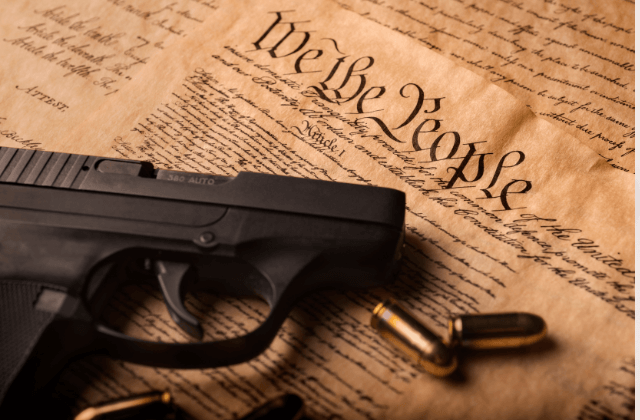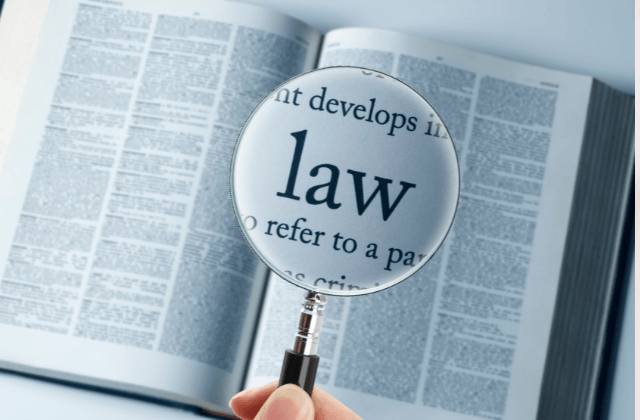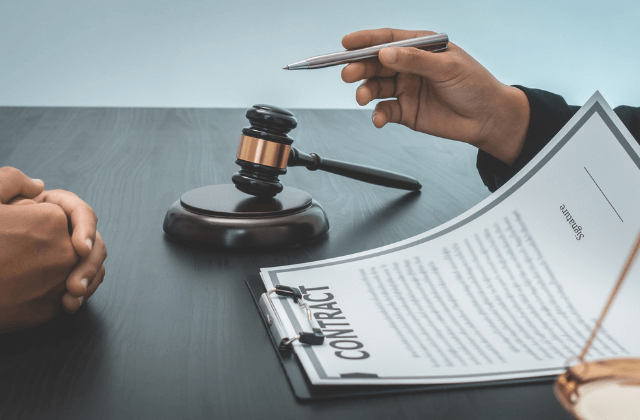This site contains affiliate links. As an Amazon Associate, I earn a commission from qualifying purchases at no extra cost to you. Full Disclosure Here.
Fortunately, the United States has no federal firearms registry outside of that for NFA items. However, certain state and local laws do incorporate registries, and there are certain situations in which you made need to unregister a gun in your name.
In this guide, we’ll go over how to do just that.
However, I’m not a lawyer. Please do not consider this legal advice, just a rough guide to help you get started.
If you need legal advice, your first step should always be to consult with a lawyer to figure out what laws are applicable in your specific situation.
How to Unregister a Gun in your Name
Generally, the easiest way to unregister a gun in your name is to transfer it to someone else. How to best do this varies from state to state, as different states have different requirements for how to transfer registered weapons.

In addition, federal laws do prevent the transfer of a firearm directly between individuals that live in different states. State laws may also prevent direct transfers between individuals, even those living in the same state. New York, for example, does not allow direct transfers of guns legally considered “assault rifles” between residents of the state.
In that case, you’ll want to use a Federal Firearms Licensee (FFL) as a go-between since they can perform the legally required background check before transferring ownership of the weapon to the other person.
Of course, even if you are able to transfer a firearm to another person directly, you’ll need to make sure that they can legally own a firearm in the first place.
You’ll want to take this route if you’re selling or gifting a firearm.
Obviously, if you want to keep your gun, transferring ownership to another person probably isn’t the best method for you. In this case, moving out of the state that requires registration and notifying the state that you’ve moved is probably your only option.
Ultimately, however, the best way to unregister a gun in your name varies from state to state.
At the federal level, there is no firearms registry unless you count the record of people who purchase firearms regulated by the National Firearms Act (NFA). There are, however, several states with firearms registries for at least some firearms, including California, New York, Hawaii, Michigan, Connecticut, New Jersey, and Maryland. D.C. also requires firearm registration.
Just like how all of these registries operate a little bit differently, so does how to unregister a gun in your name.
If you’re interested in unregistering a gun in your name, the best way to get started is by contacting a lawyer in your state, preferably one that specializes in gun laws. Your state attorney general’s office can also be a helpful resource for questions like this.
Step-by-step Process to Follow to Unregister a Gun in your Name
Now that we’ve covered the basics, let’s go into a bit more detail. Basically, the best way to unregister a firearm in your name is to transfer ownership to someone else. Let’s go over how to do that.
Check National Laws
If you live in the United States, you don’t have to worry too much about federal laws unless you’re interested in unregistering an NFA item, such as a fully automatic weapon or a short-barreled rifle or shotgun.

If you are transferring an NFA item, you must file a transfer form with the ATF and pay any applicable transfer tax. Then you have to wait for approval from the ATF. Once that happens, you can transfer the firearm.
In addition, whether your gun is regulated by the NFA or not, you should know that federal law only allows direct transfers between residents of the same state. In addition, you can only transfer a firearm to someone who’s legally allowed to own a firearm in the first place.
If you live in another country, there may be applicable federal laws. However, this guide is focused on the United States.
Check State and Local Laws
This is where things shake up a bit more, depending on where you live. In most states, since there’s no firearm registration, to begin with, there’s nothing extra to do here. (At least as far as registration goes, some states do require you to keep a record of any firearm transfers or sales regardless of registration).

And make sure you’re looking at the laws specific to the type of firearm you’re transferring. Some states have different requirements for handguns vs. long guns or have special categories of “assault weapons” that have their own special requirements for transfer.
For example, under Hawaiian law, you may transfer a handgun (as long as it’s not legally classified as an “assault pistol”) directly to another person. You just have to obtain their permit, sign the permit in ink, and submit it to the Hawai’i Police department via registered delivery or hand delivery within 48 hours of the transfer. Long gun transfers function similarly but with a long gun sale transfer form instead of a permit.
On the other hand, California typically doesn’t allow transfers between individuals, even between two California residents that can legally own firearms.
Simply Googling the transfer requirements for your state, county, and city is a great place to start. However, if you’re looking for information you can act on (as opposed to being curious), talk to a lawyer or the applicable attorney general’s office. Your local police department can also be a great resource.
Make Sure the Transferee Can Legally Own a Gun
Legally, you are required to do your due diligence to make sure that the person you’re transferring your firearm to is legally allowed to own a gun. Things to look for include making sure that the person is old enough to own the type of weapon you’re transferring by checking ID or other paperwork, asking for any paperwork, licenses, or permits that are required for legal gun ownership where the transferee resides, and checking for criminal history.
Start the Transfer Process
Once you know what needs to be done, you can get started.

Begin by obtaining and filling out any necessary paperwork. If you need an FFL to facilitate the transfer, get in touch with one to make sure they’re willing and able to help and find out what fees they charge.
If you need to find an FFL, the ATF has a handy FFL listing that makes it easy to track down an FFL near you.
Remember to follow any instructions from law enforcement or your lawyer.
FAQs
While there is no national registry of gun ownership (with the exception of items regulated by the National Firearms Act), some states do have laws requiring the registration of firearms. Following gun laws is extremely important, and failure to do so can result in serious legal repercussions, including no longer being able to own a firearm lawfully.
Unfortunately, the answer to this question varies greatly depending on what state or city you live in. In some states, there are no licenses for ownership whatsoever. In others, you have to have a license to purchase any firearm. If you’re not sure what the laws are where you live, it’s always a good idea to contact a lawyer.
Conclusion
Unregistering a gun is a bit of a convoluted and finicky process, but at the end of the day, as long as you’re familiar with your local laws (or retain the services of someone who is), it’s not too much of a hassle.
In general, the best way to go about it is to transfer the firearm to someone else, whether a federal firearms licensee or to another private individual, through some official means. And remember, there is no federal registry, so it’s just your state registry that you must keep in mind.

